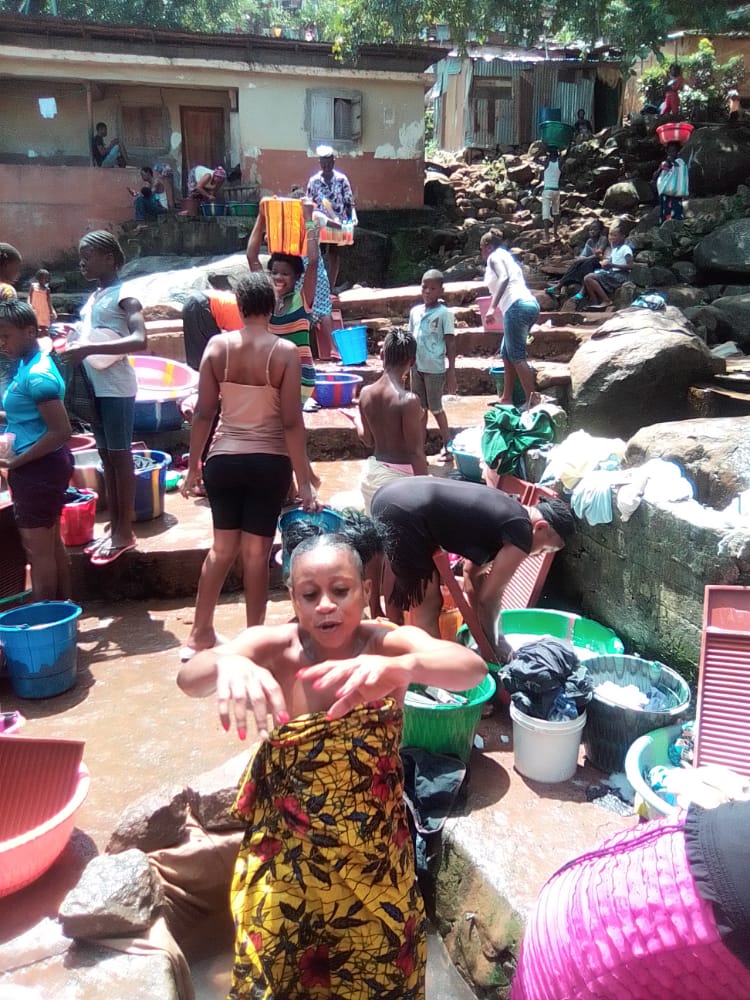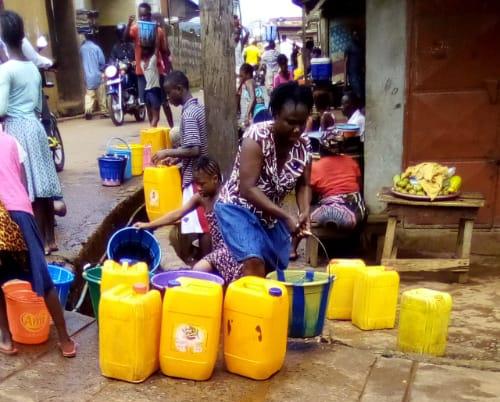Water supply in Sierra Leone is generally characterized by limited access to safe drinking water. The city of Freetown is currently experiencing a significant changes in water supply and it accessibility.
Over the years the supply and access to safe drinking water is increasingly becoming an arduous task. The inadequate supply from the municipal system (GUMA Dam) have forced the population to seek informal sources (borehole, unprotected wells, rain water, streams, river), consequently, leading to hazards to health and the risk of diseases, such as: diarrhea, cholera, typhoid.
According to a survey conducted in 2019 by Center for Disease Control (CDC), only 2% of the population of Sierra Leone have access to clean and readily available drinking water. Unlike the rest of the country, the figure in Freetown is relatively high as compared to other towns and villages, due to some affluent neighborhoods that spreads around, especially, in the western part of the city. Nonetheless, we can’t speak of the same for the eastern part of the city as situation are in dire conditions.

The sprawling hills and mountains of Freetown which are now habitats to millions of Freetowneans, had in the past served as catchment basin. The irrational activities of man that leads to encroaching these protected areas without any serious consideration on the impact on the environment has further exacerbated the problem of water shortages, thus, decreasing the level of water in the reservoir.
‘Water is life’, is a popular phrase that’s encapsulated in our society and it’s not just some quaint indigenous metaphor… in actual fact, all living organisms (human being) depend absolutely on water. However, too often our rights to clean water is being trampled upon by the same people we entrusted to provide us with this need. Thereby, resulting into death and other form of severe illnesses.

Walking around Freetown, in every corner of the city, one will be amaze to the sight of umpteenth amounts of plastic containers, commonly called ‘5 gallons’, as people (most especially children), scramble to salvage any drop of water from these informal sources for home use. These children are often caught in harms way; leaving them to be exposed to bully, fights, bandits, rape, slavery/child labour, trafficking and other form of abuses.

It’s disheartening to see these children as little as five (5) years old carrying water in plastic containers on their head, travelling long distances in-order to fetch water. Other children with more physicality are coerced to carry water in plastic containers with both hands. Those children could also be seen transporting water on the traditional cart called ‘omolankay’, which requires a lots of energy to push and pull, and they also use wheelbarrow. These children are often late for school as some parents/guardians are more concerned about having water at home at every cost in the expense of the children/ward’s education.
Water scarcity/unavailability in the city has attracted a new line of dubious businesses. Many people are now taking advantage of other people’s situation, thus, illicit large amount of money from people accessing their alternative source of water supply. The City’s authority (Guma valley water company/SALWACO) that are mainly charged with providing water for it inhabitants are not exempted from these insidious acts.
It’s the right of every inhabitants of this city and the country at large to have access to clean drinking water. The government must ensure that pipe borne water is provided to every communies: for as long as ballot boxes could make it way to these communities during election, we strongly believe that water can do likewise.











